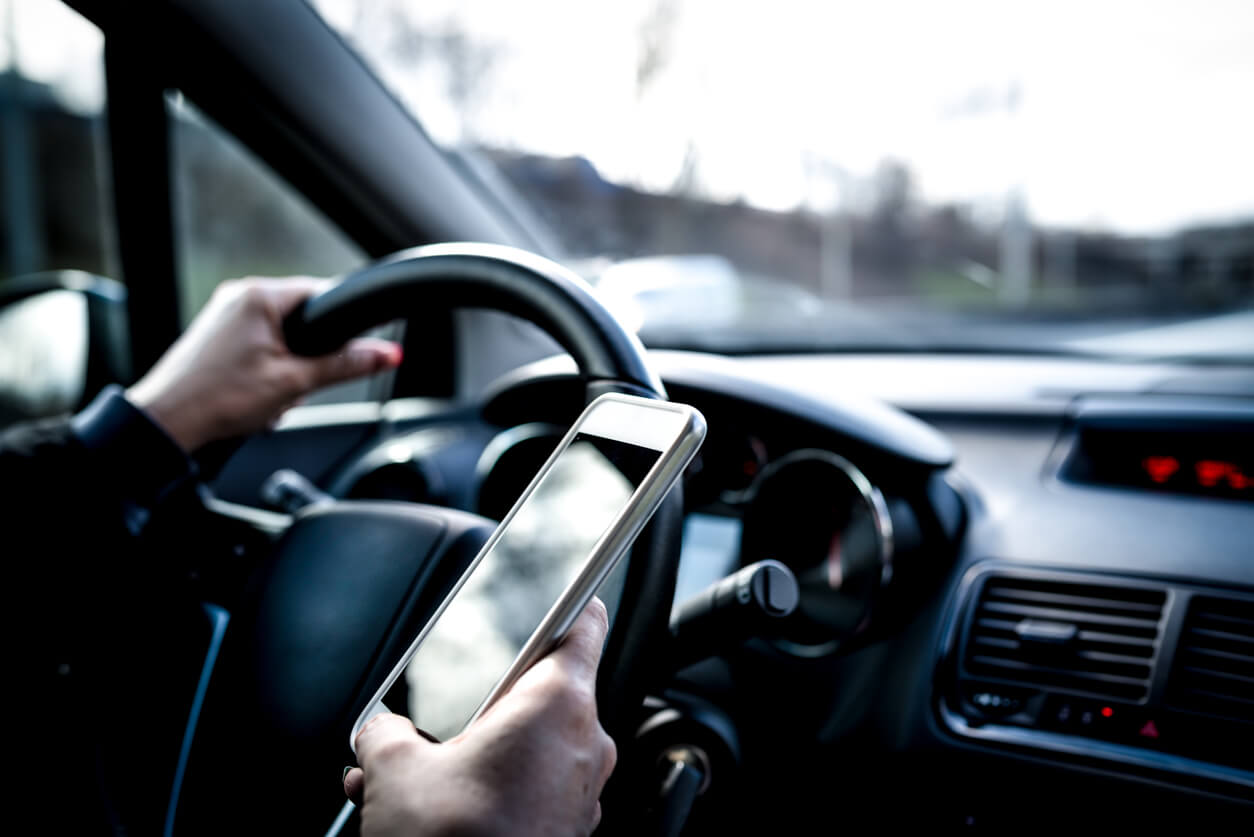Everyone knows the dangers of texting and driving, but did you know that other driving distractions can be just as dangerous as sending that “on my way” text? Each year, thousands of people are killed in accidents caused by distracted drivers.
Besides being a danger to others on the road, distracted drivers can end up in serious legal trouble if they get a citation for distracted driving, which could affect their license status.
What actions are considered distracted driving?
The National Highway Traffic Safety Administration (NHTSA) characterizes distracted driving as any type of activity that can remove your attention from driving. Many activities can take your attention away from your driving, including:
- Eating or drinking
- Putting on make-up
- Using a GPS navigation system
- Texting or watching a video on your phone
- Paying more attention to your passengers than the road
Even changing your playlist could be considered to be a distraction. Now, consider the fact that nearly everyone has a smartphone — how many distracted drivers do you think are passing you on the road?
How dangerous is distracted driving?
Just a few seconds of distraction could be enough to cause you to accidentally rear-end the car in front of you or hit a pedestrian who steps onto a crosswalk. If you’re texting and driving, you may not have enough time to respond to another car cutting you off in traffic or a sudden traffic stop.
Although eating a sandwich or talking to other people in your car can distract you, cell phone use is perhaps the most dangerous type of distraction. It requires not only cognitive attention but also physical — your hands are no longer on the wheel as you manipulate the keyboard.
Any type of distracted driving, however, can cause pedestrian and cyclist accidents, rear-end accidents, or “crossover” accidents involving a driver drifting into another lane and either sideswiping someone beside them or drifting into oncoming traffic and hitting someone in a head-on collision.
What should you do if you’re in an accident involving distracted driving?
One of the first things you should do after getting into a car collision, whether you’re a pedestrian, motorcycle driver, or driving a car or SUV, is to call 911. First responders can quickly diagnose your injuries from the wreck and ensure you get the right treatment.
The responding police officer will fill out an accident report, which contains many of the important details from the wreck, including a narrative where the officer can write down how the accident happened.
But the other driver is probably not going to say that they were texting and driving.
How can you prove a distracted driving claim?
Your attorney will conduct an independent investigation into the crash, including subpoenaing the cell phone records of the other driver to prove they were using their phone while driving.
If the other driver had passengers, they could be deposed, which is questioning under oath as part of the case investigation. A deposition is administered with the same oath to tell the truth as in a courtroom, so violating this oath can carry serious legal penalties.
Your lawyer can ask the other driver’s passengers what the driver was doing at the time of the crash, and they’re legally required to tell the truth.
Do you need help after a distracted driving accident?
If you’ve been hit by another driver, whether you were walking, riding your bike, or driving, there’s a good chance that they were distracted. If they were, then they may be liable for the collision and your resulting injuries and other losses.
A traffic ticket violation attorney from New York Traffic Ticket Lawyers can help you build your case against the driver and secure you the compensation you deserve. Give us a call today to learn more about our services in Central New York.

